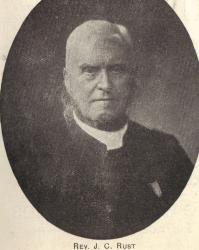Planning worship?
Check out our sister site, ZeteoSearch.org,
for 20+ additional resources related to your search.
- |
User Links
Search Results
Estu nun laŭdata Dio
Author: J. C. Rust Appears in 3 hymnals Lyrics: Estu nun laŭdata Dio, ,
Ĉiam, ĉie, kaj de ĉio,
Sur la tero de l’ homaro,
De l’ ĉiela anĝelaro.
Estas li vivdona fonto,
La beninto kaj benonto,
Patro, Filo, kaj Spirito,
Gloru lin sen intermito.
Estu nun laŭdata Dio
Estu nun laŭdata Dio
Author: J. C. Rust Hymnal: Himnaro Esperanta, 5-a eld. #278 (1966) Lyrics: Estu nun laŭdata Dio, ,
Ĉiam, ĉie, kaj de ĉio,
Sur la tero de l’ homaro,
De l’ ĉiela anĝelaro.
Estas li vivdona fonto,
La beninto kaj benonto,
Patro, Filo, kaj Spirito,
Gloru lin sen intermito. Languages: Esperanto
Estu nun laŭdata Dio
DOKSOLOGIO
Hymnal: Ordo de Diservo #0 (1907) First Line: Estu nun laŭdata Dio Lyrics: 1. Estu nun laŭdata Dio,Ĉiam, ĉie, kaj de ĉio,-Sur la tero, de l' homaro,De l' ĉiela anĝelaro;2. Dio, la vivdona fonto,La beninto kaj benonto,La benoto kaj benito,Patro, Filo, kaj Spirito. Tune Title: DOKSOLOGIO
DOKSOLOGIO
Doksologio
Author: John Cyprian Rust Hymnal: TTT-Himnaro Cigneta #134 First Line: Estu nun laŭdata Dio Lyrics: Estu nun laŭdata Dio
Ĉiam, ĉie, kaj de ĉio;
Sur la tero de l’ homaro;
De l’ ĉiela anĝelaro.
Estas li vivdona fonto,
La beninto kaj benonto,
Patro, Filo, kaj Spirito:
Laŭdu lin sen intermito. Topics: Doxologies Scripture: Psalm 69:34 Languages: Esperanto Tune Title: DOKSOLOGIO
Doksologio
John Cyprian Rust

1841 - 1927 Person Name: J. C. Rust Author of "Estu nun laŭdata Dio" in Himnaro Esperanta, 5-a eld. J. (John) Cyprian Rust was an Anglican priest, son of Baptist-turned-Anglican clergyman Cyprian Thomas Rust. He was born about 1841, and died June 29, 1927. In 1879 won the Seatonian Prize for his poem Antioch (which indicates that he must have been M. A. Cantab.). He was for some 53 years the vicar of the Church in Soham, Cambridgeshire. His sermon at the second World Esperanto Congress (Geneva, 1906) was the first known Christian preaching in the Esperanto language. In 1907 he "translated" (and in part, at least, edited, authored, and composed) the first Esperanto-language hymn publication, Ordo de Diservo; his DOKSOLOGIO in that service booklet was the first published Christian hymn tune composed for an original Esperanto text, his own "Estu nun laŭdata Dio", and his translation work appears to have been limited to the liturgy; all the translated hymns in it are by other translators, and his own two hymns he wrote originally in Esperanto. He was the chairman of the Anglican committee which in 1912 produced the standard Esperanto "Londona" version of the New Testament.
John Cyprian Rust


 My Starred Hymns
My Starred Hymns


